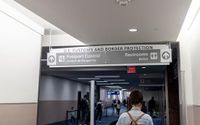Amid changing geopolitical landscapes and emerging social movements, travel advisories to the United States are becoming increasingly stringent as several NATO allies respond to the Trump administration's policies. Noteworthy updates have come from Denmark, Finland, Germany, and the United Kingdom, who are cautioning their citizens about the complexities of U.S. immigration rules, particularly for marginalized communities.
Denmark and Finland were early adopters of new travel guidance, advising their residents to exercise caution when traveling to the U.S., particularly for transgender and nonbinary individuals. The Danish government explicitly urged travelers to seek guidance from the U.S. Embassy in Copenhagen before departing. As per their birth registration laws, both countries now allow citizens to identify their gender as "X," a designation not recognized by the U.S. Electronic System for Travel Authorization (ESTA), which only accommodates the binary options of male or female. Consequently, the potential for denied entry looms for those whose gender designation does not align with their documents.
The Finnish government echoes these concerns, suggesting that individuals could risk being denied entrance if the sex listed on their passports differs from their assigned gender at birth. This caution follows a series of troubling incidents, including reported detentions of at least three German nationals by U.S. border officials, raising alarms across Europe regarding the fairness and transparency of entry procedures.
Germany updated its travel advisories in early March 2025, voicing particular concern over U.S. policies that seem to disproportionately affect transgender travelers. Sebastian Fischer, a government spokesperson, mentioned that the situation is being closely monitored to determine if these incidents are isolated or indicative of broader immigration policy shifts. “We are liaising with other EU countries to understand the implications of these cases,” he said, emphasizing the need for consolidated action in light of emerging challenges.
The U.K. followed suit, revising its travel advice on March 15, 2025. The advisory underscores that visitors must strictly comply with U.S. entry rules or risk potential arrest or detention. Historian accounts tell of individuals being detained for what would typically be minor transgressions. For instance, a Welsh tourist was shackled for 19 days in detention over an alleged violation of her tourist visa for merely helping around the house during her travels. Such incidents underscore the heightened scrutiny foreigners face, making potential travelers wary.
Canadians, too, have recently been advised to reconsider travel to the U.S. Canada’s new travel advisory, particularly impactful given its close geographical proximity, insists on a registration requirement for citizens wishing to stay more than 30 days. Previously enjoyed passport privileges now come with strings attached, posing fines for failures to comply with the registration mandate.
This expanded scrutiny for Canadian travelers is further exacerbated by President Trump’s notable hostility toward the northern neighbor, fueled by comments threatening to incorporate Canada into the United States as its 51st state. Recent statistics show a marked downturn in travel from Canada to the U.S., with over a million fewer Canadians visiting major tourist destinations like New York City, resulting in significant economic impacts.
Travel advisories across Europe also stress compliance with entry requirements, with potential implications extending to all travelers regardless of nationality. The updates suggest a global trend away from previously common practices of seamless cross-border travel. Travelers are increasingly required to possess a thorough understanding of U.S. immigration policies, especially in light of the Trump administration's unique political calculatedness.
The need for precise documentation and familiarity with entry conditions raises questions about the wider impacts on the travel industry itself. The new travel guidelines are likely to deter many Europeans from embarking on their journey, as fear of being turned away based on an arbitrary designation or minor infractions becomes a reality. Tourism experts warn that the stricter U.S. immigration policies could lead to a significant decline in international travel numbers amid a culture of alienation and mistrust.
As the landscape changes, travelers face increasing barriers to entry. The reliance on outdated notions of gender for identification does little to ease the challenge, leaving many individuals feeling unwelcome in the country. With rising international scrutiny, travelers’ experiences and challenges take center stage as countries like Germany, Finland, and Denmark reassess their own diplomatic relationships with the U.S. The projections suggest a future where travel could become fraught with complications, particularly for those from marginalized groups.
The unfolding of international travel patterns and trends amidst these evolving advisory frameworks reflects a notable shift not only in how countries interact with one another but also in the complex challenges travelers face on a personal level. With increasing hostilities and a growing sense of unease, many are left to wonder about the long-term implications of current U.S. policies on global tourism.
As countries continue to adapt their travel advisories in response to a notable shift in America’s immigration landscape, tourists must prepare themselves for a more complex, scrutinized travel experience than ever before.







